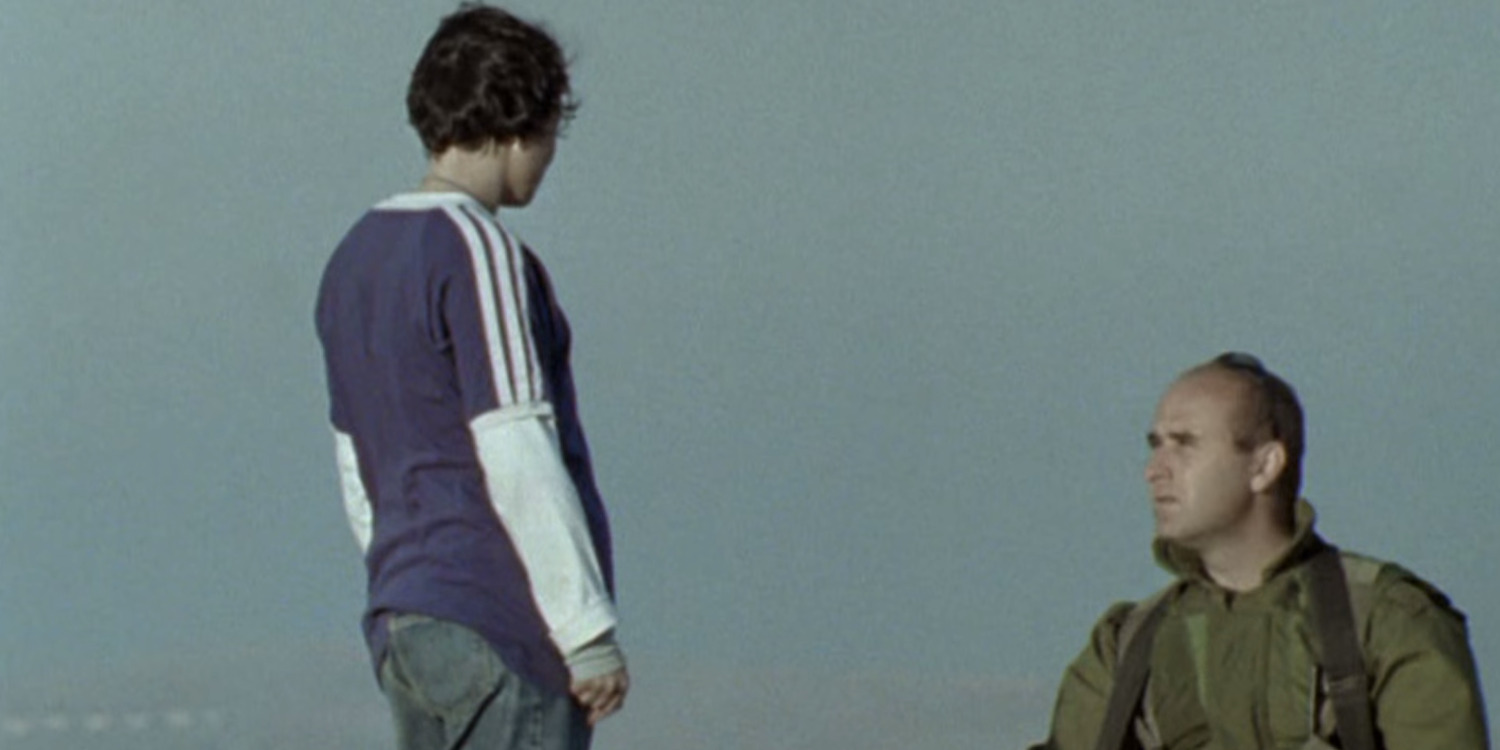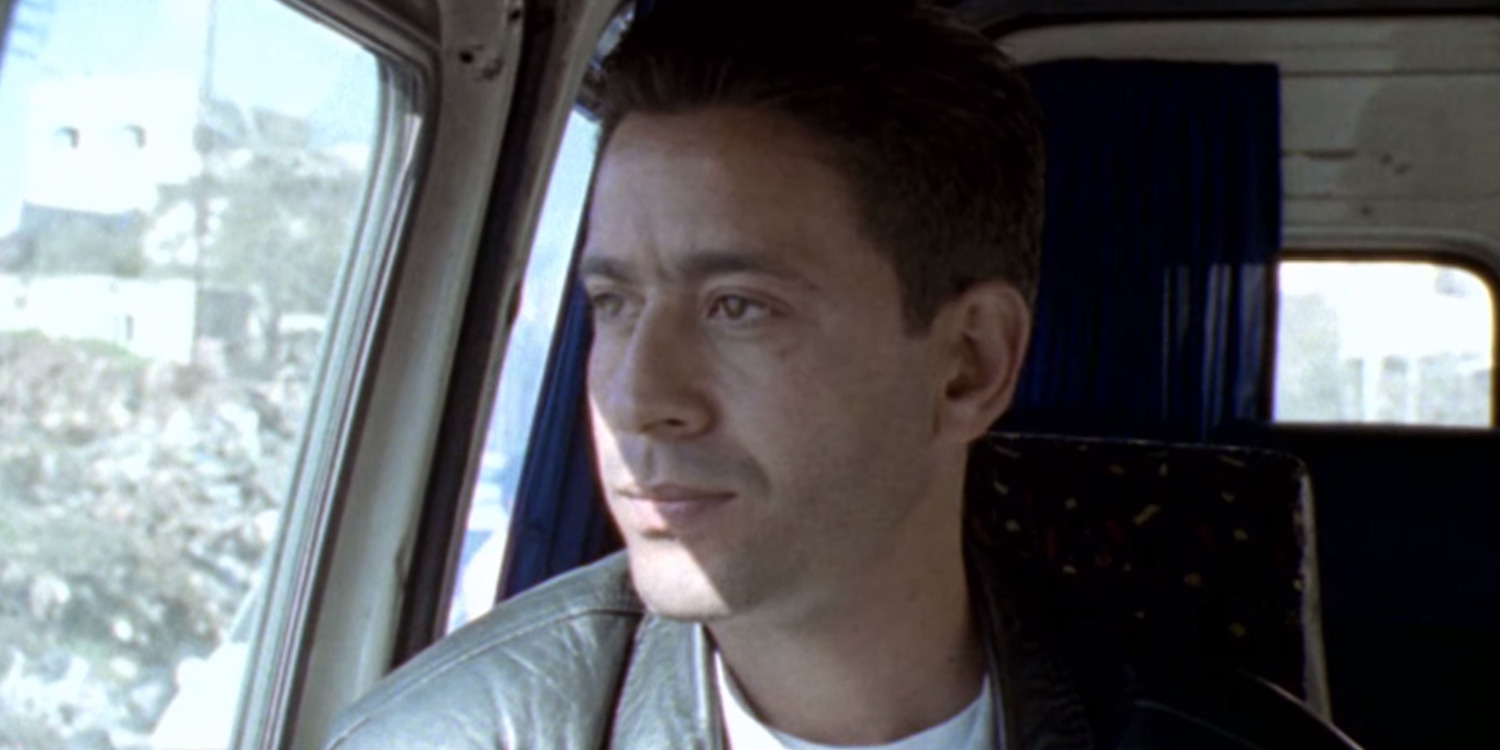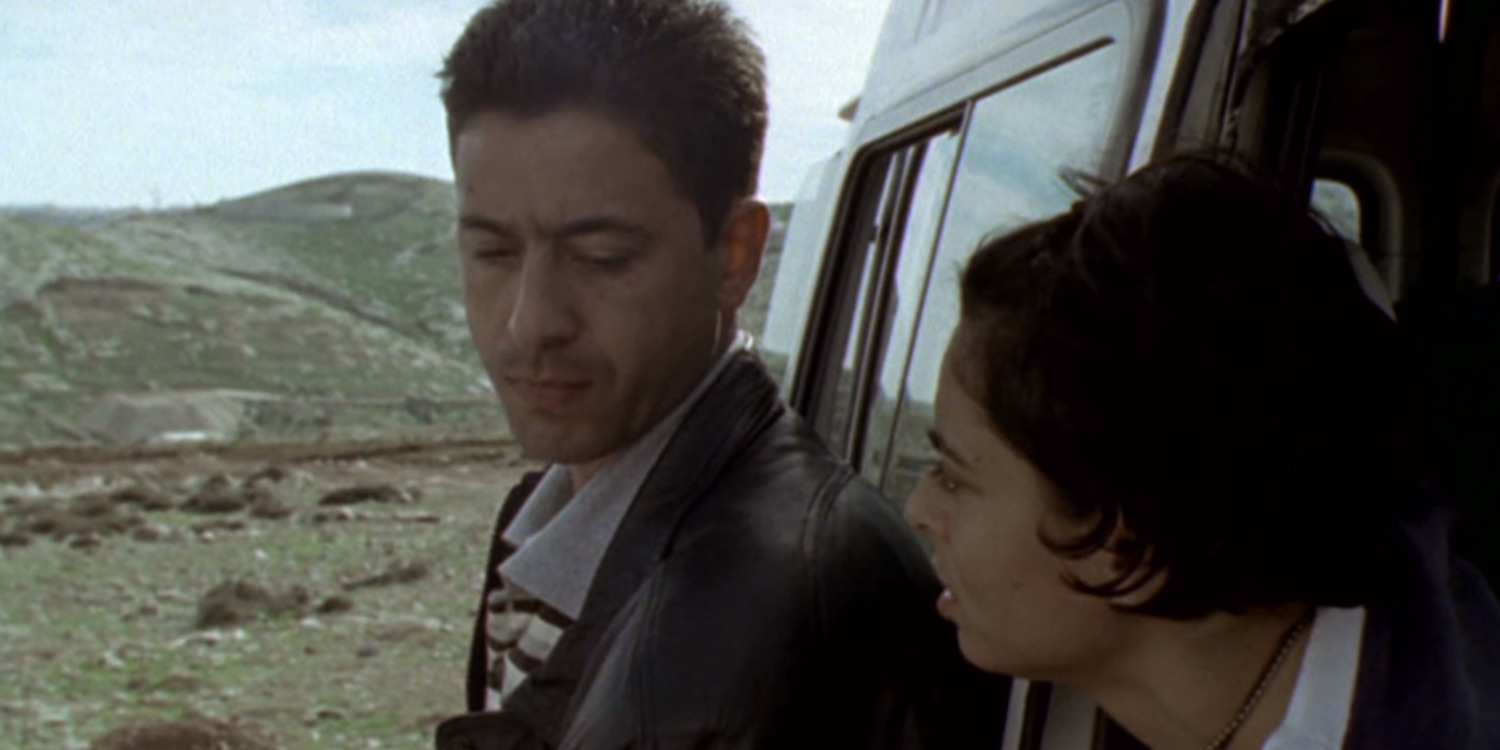The 2003 Arabic drama short film, ‘Like Twenty Impossibles,’ directed by Annemarie Jacir, revolves around the contentious Palestine-Israel conflict and its adverse effects on the West Bank and surrounding areas during the early 2000s. Following Anne-Marie, an American-Palestinian filmmaker, and her small crew on their trip to Jerusalem, the film presents the complications they face upon running into a checkpoint run by Israeli soldiers. Through its localized setting and documentary-style camerawork, the story successfully provides a nuanced depiction of its subject matter. Nevertheless, due to the same, the erratic unfolding of events may leave viewers confused about certain aspects of the film, particularly its halted end. SPOILERS AHEAD!
Like Twenty Impossibles Plot Synopsis
The film opens with Anne-Marie and her filming crew driving across the West Bank on their way to Jerusalem, where they have plans to shoot their independent film. On the taxi ride there, scenic roads become the backdrop to Anne-Marie, the director, and the reminiscence of her childhood days when her father drove her places in his car. Still, their journey comes to a momentary standstill when they arrive at the checkpoint, where soldiers look through people’s IDs before letting them through as an extension of Israel’s control over the area.

The situation paves the way for a discussion among the filming crew of a time when such formalities were not needed for Palestinians to travel to Jerusalem. Despite the large crowd of travelers waiting their turn to be allowed across the Checkpoint, the soldiers halt the checkings without announcement, rendering all cars unable to cross. As a result, Anne-Marie and her crew decide to take a side road to enter the city with no other choice left at their disposal.
However, the side road ends up spelling trouble for the crew when their taxi runs into another unanticipated military checkpoint. However, the director remains confident that nothing unfortunate will befall her crew, given they aren’t engaging in necessarily illegal activities and seeking simple passage. Nevertheless, while her American passport grants her immunity, her co-workers have to face a different reality.
Since the actor, Rami is a Palestinian hailing from Ramallah, he attracts unwanted attention from the soldiers who hold him in contempt for his lack of travel permission. Likewise, Mohammed the soundman, another Palestinian, faces a similar problem. While usually people like Mohammed, who had Israeli IDs, are allowed to pass through, this particular soldier makes a fuss out of it and demands a 2,000 shekels fine. Furthermore, they also claim to have Rami on some sort of a wanted list due to his acting career.
Consequently, Anne-Marie tries to argue in her co-workers’ favor but to no avail. Tensions run high as the soldiers insist the crew aren’t allowed to film them. As a result, the ensuing arguments and confrontations between the military, Anne-Marie, and her crew remain filmed on shaky cameras and choppy audio inputs.
Since Anne-Marie is a Palestinian herself, albeit one with an American passport, she tries to use the same to her advantage by asserting she has the freedom to travel and shoot her film. Nonetheless, it fails to buy any sort of immunity for Mohammed and Rami since their travel is banned in the West Bank due to their Palestinian roots.
Like Twenty Impossibles Ending: A Helpless Tragedy
As the film nears its end, only a bleak conclusion remains on the horizon for Rami and Mohammed. Both individuals try to argue for their freedom, asserting they have done nothing wrong by trying to traverse into Jerusalem in the West Bank. Yet, due to the vigilant Israeli rules and regulations, their presence is treated as a crime. For the same reasons, the two Palestinian men are detained on Arab soil while the rest of the crew is allowed to leave.

Anne-Marie attempts to remain insistent and free her co-workers from the soldiers’ hold, but nothing she has to say seems to matter to the other party. In contrast, Mohammed can only be taken aback by the strict implementation of such authority. Meanwhile, Rami seems to have relinquished any hope of a happy ending since their group crossed paths with these soldiers.
A conversation between the actor and his director perfectly encapsulates the same, where the former asserts his belief over his doomed fate. In response, he only receives Anne-Marie’s thinly veiled assurance that the soldiers are only taking advantage of their situation and won’t mean the individuals any harm. Of course, a much different truth awaits the man after the soldiers collect him with their guns, asking for his hands above his head as a sign of surrender.
Rami follows their instructions, as does Mohammed, whom the soldiers also take away from his group and off to a distance. In the end, Anne-Marie has no choice but to leave since her efforts to help her crew have borne no fruit. Thus, Anne-Marie leaves with a promise to return with outside help as the cameraman records his friends fading into the distance in blatant defiance of the soldiers’ “no-filming” rule.
The story concludes on an open end, leaving the viewers to wonder about Rami and Muhammed’s fates, a future that Anne-Marie and the other characters likely had to undergo as well. The narrative intentionally leaves the ending on an ambiguous note to incite conversation among the viewers and parallel the reality that many Palestinians found themselves living at the time.
By leaving the characters’ demises as an uncertain ending to the story, the short film succeeds in capping the tension that boils throughout the narrative’s seventeen-minute runtime. In the end, the viewers are left helpless spectators to the wrongful but legal detention of two people who have done no real harm.
As such, the ending parallels the state of the other characters, those close to Rami and Mohammed. Moreover, it further reflects a crucial aspect of reality where much of the world usually becomes witness to other’s pain without moving to prevent the same. Thus, as we leave our protagonists to fade into the scenery, the audience is compelled to think about the real people of Palestine and their geo-political position in recent history.
Read More: Born in Gaza: Where Are They Now?


You must be logged in to post a comment.